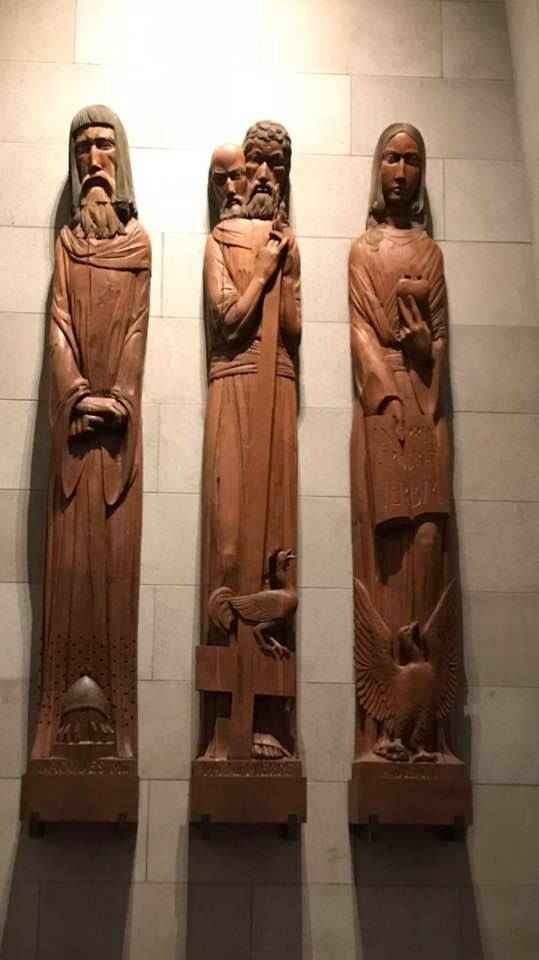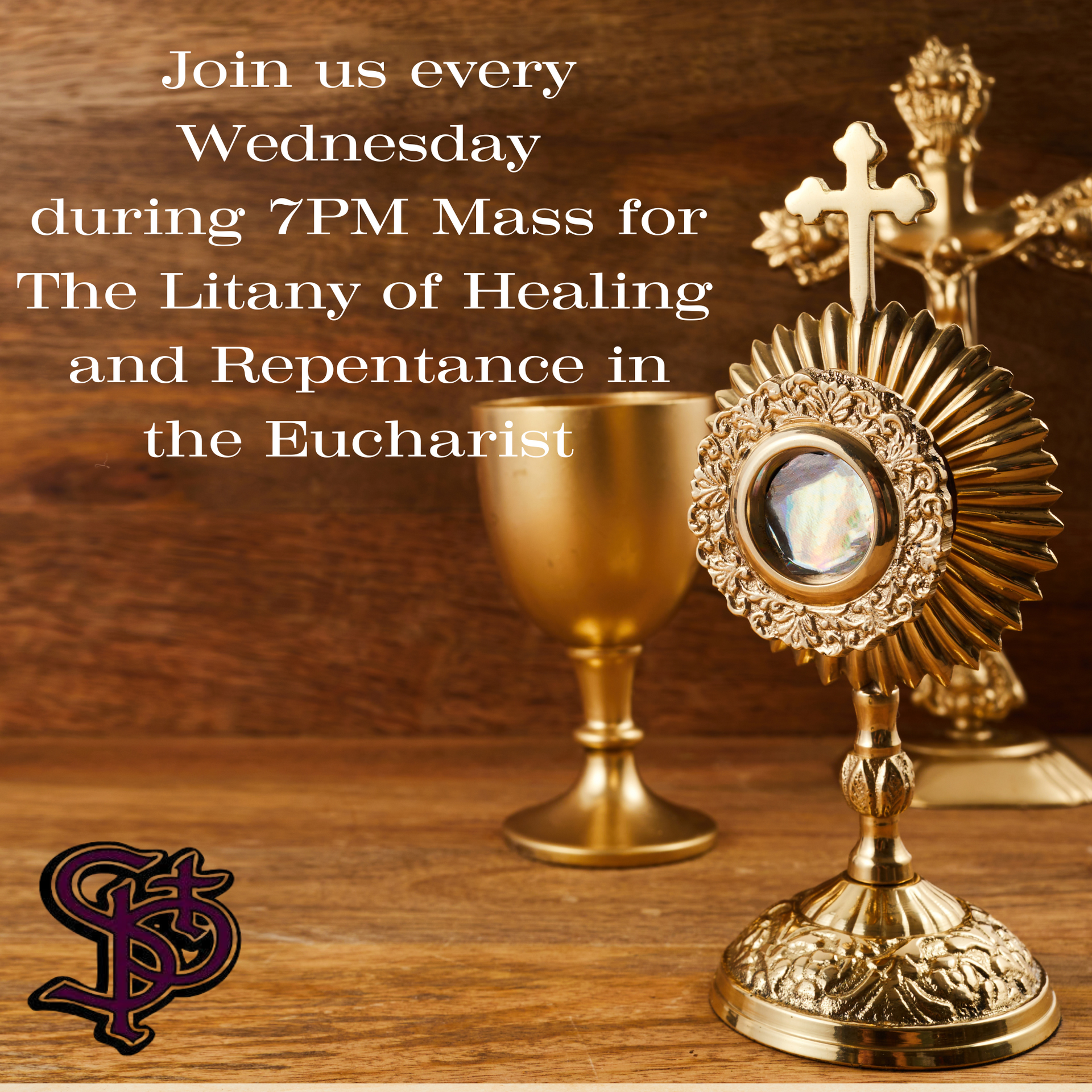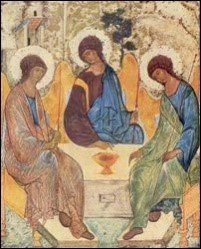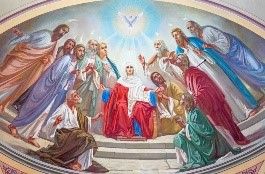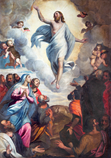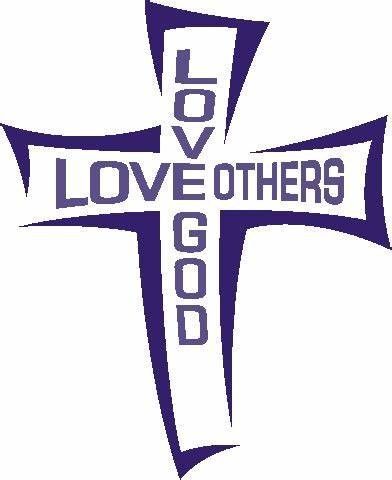The Words of Eternal Life—Spoken & Unspoken Words

Joke: A climber fell off a cliff. As he tumbled down into a deep gorge he grabbed hold of a branch of a small tree. “Help” he shouted. “Is there anyone up there?” A deep majestic voice from the sky echoed through the gorge. “I will help you, my son. But first, you must have faith in me.” “All right, all right, I trust you,” answered the man. The voice replied, “Let go of the branch.” There was a long pause and the man shouted again, “Is there anyone else up there?”
In our spiritual journey, sometimes we wonder and question: Are there other gods besides our God? Especially, when we have to face difficulty after difficulty, struggle after struggle. In all today’s readings, the Church helps us to focus our attention on Peter’s response to the Lord Jesus saying: “Master, to whom shall we go? You have the words of eternal life.” More than ever before, these words should be in our minds and on our lips often, “Master, to whom shall we go? You have the words of eternal life.” What might help us understand is: What are the words of eternal life? Words: There are two kinds of words: It is either called the unspoken words or the spoken words. The unspoken words are like symbols, pictures, the look of our spouse, the gesture of our children in trying to hide something from us, etc. The spoken words are what we can hear with our ears sometimes is soft, other times is bitter, and still others is filled with anger and frustration. Jesus speaks to the people not only in the spoken words but also in the unspoken words.
Today’s Gospel is a continuation of last weekend’s Gospel, the Bread of Life Discourse. Verses before today’s verses in chapter six of John, Jesus said to the Jews and his disciples that he is the Bread of Life that comes down from heaven “Whoever eat my flesh and drink my blood will have eternal life.” These were the spoken words speaking directly to Jesus’ disciples and those who were present. Had they believed in these spoken words of Jesus? Listen to their response reported in today’s Gospel, “This saying is hard; who can accept it?” They left Jesus including some of Jesus’ disciples. Is it the story of more than two thousand years? No, it is still the story of our time. If you are, Jesus, the Son of God, you cannot give us your Body and your Blood as food and drink. This is exactly why, there are so many religions that believe in God, but not in the Holy Eucharist. The Body and the Blood of Jesus Christ, the true sacrifice of the Son of God on the Cross, they rejected and the words of eternal life they refused to listen, why is that? Perhaps, it is their hardened heart that Jesus time after time reminds them. This hardened heart blocks their mind, heart, and soul from believing that Jesus Christ is God, the Son of God, and not just a human being, a son of Mary and Joseph. The spoken words of Jesus now become the written words, the unspoken words for us, have we come to believe in the words of eternal life, the spoken words and the unspoken words?
In today’s first reading, Joshua gathers the Israelites and asks them to decide what God they follow. They all say, “The LORD, our God, who brought us and our fathers up out of the land of Egypt, out of a state of slavery. He performed those great miracles before our very eyes and protected us along our entire journey and among all the peoples through whom we passed.” Excellent answer. Some people listened to the spoken words of God through the unspoken words of God which are the actions of leading them out of the land of Egypt, out of state of slavery. However, if that same question is presented to us today, “What God do we follow?” How would we respond? Some of us might think that as long as we believe in the Lord, we should be saved. Therefore, we don’t need to go to Church. As long as we read Scripture and don’t do any harm to anyone, we should be saved. They might use verses here and there from the Scriptures so well like: “Faith in Jesus even saves us from condemnation” (Rom 8:1), “Whoever believes in him, will not be disappointed” (1 Pt 2:6), “Believe in the Lord Jesus and you will be saved” (Acts 16:31). These are a few quotes from the Scripture, but Scripture contents the whole human salvation history from the beginning to the end, from the book of Genesis to the book of Revelation so that we cannot dissect or pick out a piece from this place or that place and speak for the whole human salvation history of the whole Scripture. One cannot say that he or she is a follower of Jesus Christ, a Catholic, by saying I believe in God; or I read the Scripture, or I pray, and that’s enough for my salvation. Is it so? Believe in God, read the scripture, or pray, they are all good, but is it enough for our salvation? How do we understand the words spoken by the first pope, Simon Peter, when he responds to the Lord Jesus saying, “Master, to whom shall we go? You have the words of eternal life”?
To help us understand the words of Simon Peter, Saint Paul, in today’s second reading, encourages us to pay attention to the word: Subordinate. Within eleven verses of chapter five, we see the verb “subordinate” repeated four times. What does it mean to subordinate? Does it mean to believe in God without participating in the life of the Church? Does it mean to pray by ourselves without knowing there is a need for our prayer for those within our community when we do not participate in the life of the Church? Does it mean to read the Bible without receiving the Body and the Blood of the Lord Jesus Christ to nurture our souls and to bring us everlasting life? Jesus, to whom shall we follow? You have the Words of Eternal Life, the unspoken words—the ultimate sacrifice on the Cross and the everlasting food and drink of your Body and Blood for our salvation, and the spoken words—the Scriptures and the teaching of the Church. Brothers and sisters, the decision to listen to the Words of Eternal life and to live the Words of Eternal life is yours.



